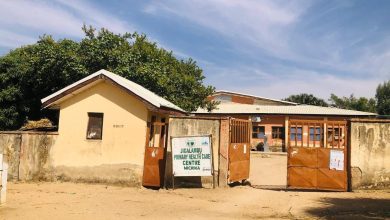Nigeria Records 20 Monkeypox Cases In May, 1 Death – NCDC
Compared with cases reported in April 2022, the NCDC stated that the new suspected cases signify a 100 per cent increase in cases reported due to ongoing efforts to increase awareness and improve surveillance.

Twenty suspected monkeypox cases and one death were reported from 11 states in Nigeria in May 2022, the Nigeria Centre for Disease Control (NCDC) has said.
Monkeypox is a viral infection caused by the monkeypox virus, a genus of orthopoxvirus in the pox family that includes both smallpox and cowpox.
The NCDC revealed on Monday, May 30, that 20 suspected cases from Lagos (5), Bayelsa (2), Adamawa (2), Rivers (2), Niger (2), FCT (2), Delta (1), Oyo (1), Kaduna (1), Edo (1) and Gombe (1) were reported in May.
Out of the 20 suspected cases, six cases were confirmed positive from four states – which are Bayelsa (2), Adamawa (2), Lagos (1) and Rivers (1).
Compared with cases reported in April 2022, the NCDC stated that the new suspected cases “Signify a 100 per cent increase in cases reporting due to ongoing efforts to increase awareness and improve surveillance.”
The NCDC said out of 66 suspected cases of monkeypox reported from Jan. to May 2022, 21 patients were confirmed from nine states – Adamawa (5), Lagos (4), Cross River (2), FCT (2), Kano (2), Bayelsa (2), Delta (2), River (1), Imo (1). The one death – was in a case of a 40-year-old man with renal co-morbidity and on immune-suppressive drugs.
Ifedayo Adetifa, the Director-General of NCDC, said the health agency was worried about the disease due to its close relation to the smallpox virus.
“Monkeypox can potentially change from being a sporadic transmission to something that can give the Nigerian health sector a major concern,” he said during an interview on Channels TV.
On Friday, May 6, the infection was reported in a traveller by the UK Health Security Agency (UKHSA). As of Thursday, May 26, 257 confirmed cases of monkeypox and 120 suspected cases had been reported by WHO. No deaths have been reported.
The situation is evolving rapidly, and WHO expects that more cases will be identified as surveillance expands in non-endemic countries and countries known to be endemic that have not recently been reporting cases.
Support Our Journalism
There are millions of ordinary people affected by conflict in Africa whose stories are missing in the mainstream media. HumAngle is determined to tell those challenging and under-reported stories, hoping that the people impacted by these conflicts will find the safety and security they deserve.
To ensure that we continue to provide public service coverage, we have a small favour to ask you. We want you to be part of our journalistic endeavour by contributing a token to us.
Your donation will further promote a robust, free, and independent media.
Donate HereStay Closer To The Stories That Matter




